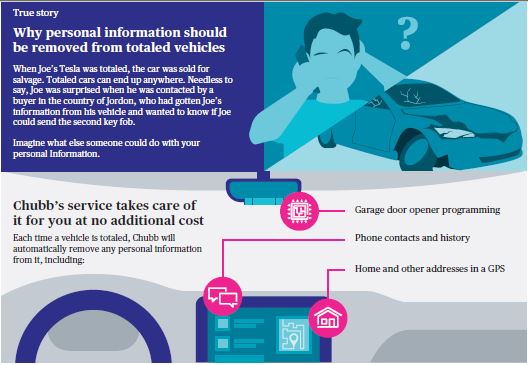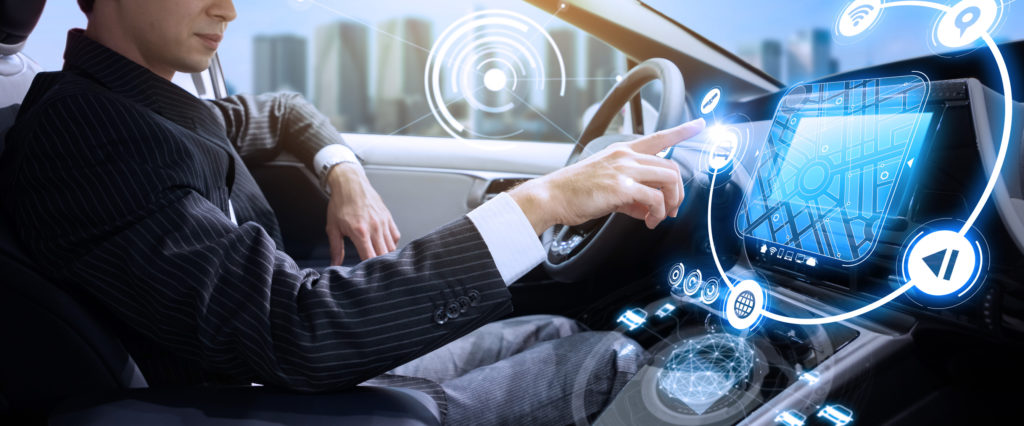The Rise of the Smart Car
Originally, the sole purpose of our cars was to transport us from point A to Point B. Throughout the years, as technology developed, the vehicles of today have become “Smart Cars.” With a vast array of sensors and intelligent systems, “connected” either directly or indirectly, to the Internet.
We enjoy the functionality, comfort and even the entertainment found in today’s vehicles. You can sync contacts and make calls through Bluetooth in your Tesla, find your destination through the COMAND navigation system in your Mercedes-Benz, and even avoid that hubcap in the road using the Active Lane Assist in your Audi. Global management consulting firm, McKinsey & Company has said, “Today’s car has the computing power of 20 personal computers, features about 100 million lines of programming code, and processes up to 25 gigabytes of data an hour.”
Common Cybersecurity breaches
While we think about protecting the personal information on our laptops or phones, we rarely stop and think about how vulnerable to hackers our vehicles really are. Our smart cars are vulnerable to the same security breaches as other types of software, including malware, hackers, and cybercriminals. Some of the most common breaches happen in the simplest of vehicle technologies:
Key Fobs: Hackers use a relay attack or signal amplification to capture a key fob’s signal and use it to unlock the car. While most luxury vehicles pass the keyless car theft test, some brands remain vulnerable. The wireless signal on some keyless fobs can be switched off, or you can place your key fob in a special signal blocking pouch (known as a Faraday bag or pouch) to prevent the signal from being copied.
On-Board Diagnostic Port: On-Board Diagnostic Ports allow for communication with your vehicle’s computer and are traditionally used by mechanics to diagnose issues. The OBD port bypasses security measures and provides access to the vehicle’s computer for maintenance, which can also be used by hackers for backdoor access.
Car Alarm Systems: One of the most prevalent smart car security breaches are with the car’s alarm system. Hackers can exploit insecure direct object reference (IDORS) issues within the alarm’s software, allowing them to disable the alarm, access the vehicle’s location, unlock the doors, and cut the engine even while in use.
Protecting Smart Cars from Cyber Security Breaches
There are precautionary measures that you can take to protect your connected vehicle from hacking and cyber threats.
Keep your car’s software updated: Sign up for manufacturer’s updates, keep your smart car apps up to date, and patch firmware. Car manufacturers regularly test and update vehicle software systems to keep drivers safe. Signing up for manufacturer recalls and software patches will help you keep track of these updates.
Disable any smart services you don’t use: Limiting the connectivity ports a hacker can use to access your vehicle, lessens your risk. If you have smart technology in your vehicle that you don’t use, such as Bluetooth, deactivate it.
Make sure Your Wi-Fi is Secure: Routinely check the Wi-Fi hot spot used by your vehicle and whenever possible secure it by setting strong passwords and always replace any default passwords.
Totaled Car? Protect Your Personally Identifiable Information (PII) with Chubb
If you experience a claim or have an accident, and the cost to repair your vehicle exceeds the value of the car, your car may have to be totaled. If your car becomes totaled, the data stored in your vehicle’s computer systems needs to be removed in order to protect your personally identifiable information. Our partner’s at Chubb Insurance provide a complimentary service to auto policyholder’s. Chubb automatically removes all personally identifiable information from auto policyholder’s vehicles that are totaled, in order to keep clients’ identities and personal information secure. The Chubb Insurance info graphic below details, the industry-leading service their provide to their auto clients.

Let Our Team Protect What You’ve Built
McSweeney & Ricci’s Private Client Group specializes in the unique needs of accomplished clients. Successful individuals and families look to our Private Client Group to protect their high value homes, cars, and valuable collections. Our professional advisors provide concierge level service, expert advice, and access to premium insurance carriers including Chubb Insurance.
For more information on Private Client Group Insurance or how to protect yourself and your vehicle from cyber threats with Cyber Fraud protection contact us at (844) 501-1361 or connect with us via email.
Sources:
Chubb Insurance “Keeping you and your personal information safe: Chubb offers industry-leading service for auto clients”
3/26/19 Hitachi Systems Security, Inc. “Smart Car Security Threats: Is the Connected Car a Good Idea?”
09/17/19 Webroot: “Keeping Your Vehicle Secure Against Smart Car Hacks” Author: Drew Frey

